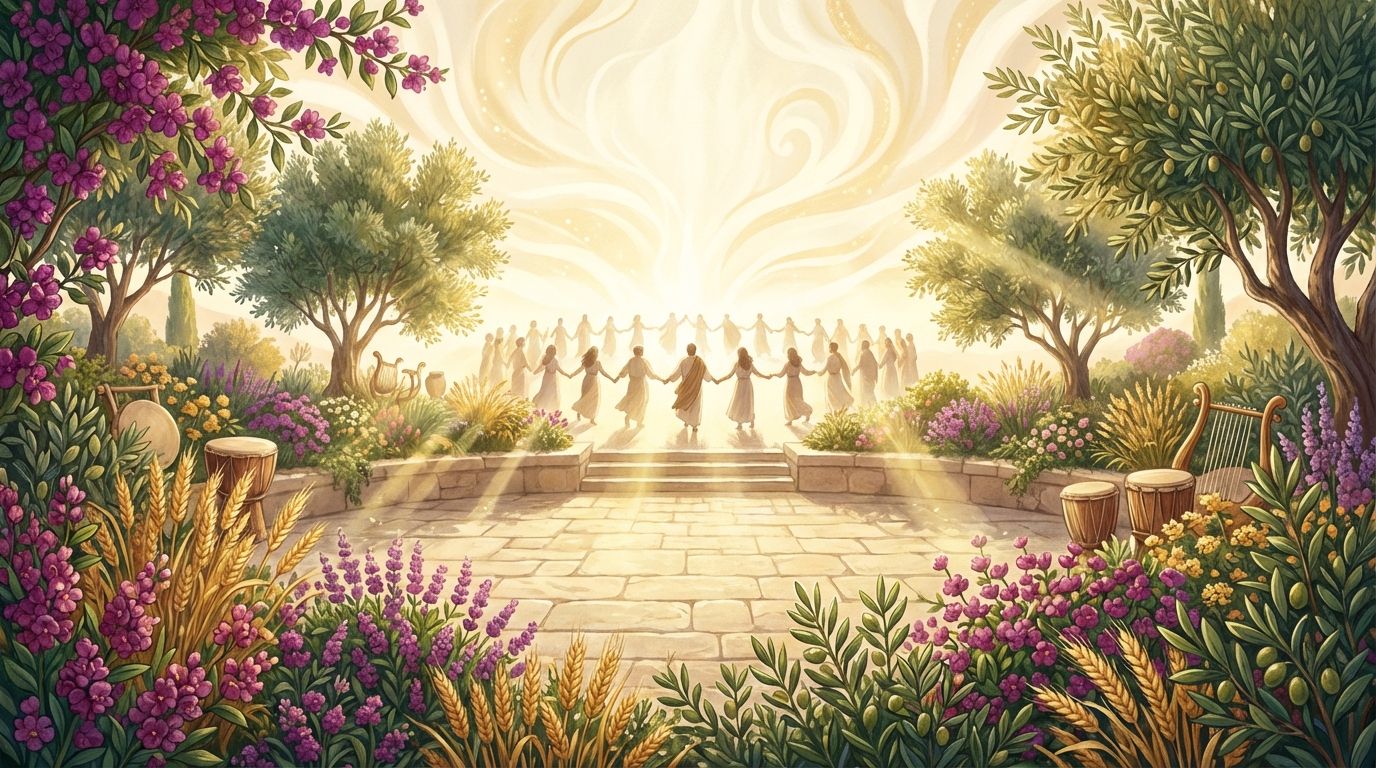[Art by Anna Zarnitsky]
וַיְכַל אֱלֹהִים בַּיּוֹם הַשְּׁבִיעִי מְלַאכְתּוֹ אֲשֶׁר עָשָׂה וַיִּשְׁבֹּת בַּיּוֹם הַשְּׁבִיעִי מִכָּל-מְלַאכְתּוֹ אֲשֶׁר עָשָׂה
Vayechal Elokim bayom hashvi'i melachto asher asah vayishbot bayom hashvi'i mikol-melachto asher asah.
2:2 And on the seventh day, G-d finished all His work which He made. He rested on the seventh day from all His work which He made.
The world was established in its beauty and perfection, but an essential ingredient was lacking - Shabbat, rest! Only when Shabbat came to the world, did rest come to the world. It was the Rest which Hashem created on the seventh day! (Bereishit Rabbah)
Each day, when G-d commanded that something be created, the creative process would continue. Thus, for example, when G-d said, "Let there be a firmament," it came into being; until Friday evening, it continued to increase and spread out. (Bereishit Rabbah) It is for this reason that one of G-d's Names is Shakkai, coming from the word Dai, meaning "enough." If G-d had not said, "Enough," to the universe, commanding that the firmament stop, it would still be expanding. The same is true of the earth, since it did not know its destined size.
It therefore appears that the world continued to work all through the week. Although translated as "He rested on the seventh day," it can also be translated, "It rested on the seventh day," where "it" refers to the universe. This indicates that the universe itself had rest and repose on the Shabbat.
In Hebrew this verse is וַיִּשְׁבֹּת בַּיּוֹם הַשְּׁבִיעִי where the subject is implied, but not actually designated. The verse does not say, "G-d rested on the seventh day," in the same manner as it says, "and G-d finished," or "G-d blessed." The subject of this phrase is creation as a whole, which rested on the Shabbat. (Ibid.)
"And G-d blessed the seventh day..." (2:3)
Shabbat was blessed above all the other days of the week in various ways:
- In the Wilderness, the Benei Yisrael received a double portion of mann on every Erev Shabbat, providing food for Shabbat. The blessing of extra mann is but one example of the Divine guarantee that whatever a person spends in honor of the Shabbat is refunded to him by Hashem. (Shabbat 1:1 [2a])
- Not only is a person recompensed for any financial loss he might seem to incur for the sake of Shabbat observance, but, in fact, one who honors this day is rewarded also with a good life and with wealth. (Bereishit Rabbah)
- Hashem also blessed the Shabbat with tasty food.
- Another blessing of Shabbat is that the wicked in Gehinnom are granted respite from their punishment and torture every seventh day.
- The primeval Light created by G-d was so intense that it shone from one end of the universe to the other, but because of the wicked, G-d stored it away for the righteous in the Olam Haba. This Light, however, was not put away immediately. Chazal taught that this light functioned for thirty-six hours, consisting of twelve hours on the sixth day, and twenty-four hours on the first Shabbat. As soon as Adam sinned, G-d wished to remove this remarkable Light, but He put aside doing so because of the merit of the Shabbat. This is the Extra Soul (Neshamah Yeterah) that every Jew has on this holy day, one more spiritual and holy than that of the weekdays. Because of this extra soul, we say each Shabbat in the morning service, the prayer Nishmat: "The soul of all life shall bless Your Name." (Levush 281)
--------
Source: Me'am Lo'ez; Midrash Says













.gif)




